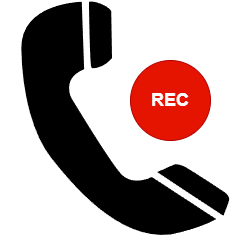
In today’s highly competitive business environment, it’s more important than ever to provide the best customer service possible. One way to achieve this is by recording your calls. Call recording is a valuable tool that can help businesses improve customer service, train employees, and ensure regulatory compliance.
Here are some of the reasons why businesses should record their calls:
1. Improving Customer Service:
Call recording provides businesses with valuable insight into how their customers are being served. It allows businesses to monitor how their employees are handling customer inquiries, concerns, and complaints. By reviewing recorded calls, businesses can identify areas where customer service can be improved and provide employees with feedback and training.
2. Employee Training:
Call recording is an excellent tool for employee training. By reviewing recorded calls, businesses can identify areas where employees need more training or coaching. Managers can use these recordings to train employees on how to handle difficult customers or situations effectively.
3. Legal Compliance:
Many industries are subject to strict regulations when it comes to recording. For example, in the healthcare industry, calls may need to be recorded to comply with HIPAA regulations. In the financial industry, calls may need to be recorded to comply with SEC regulations. By recording calls, businesses can ensure that they are following these regulations and avoid costly fines and legal issues.
4. Resolving Disputes:
In some cases, recorded calls can be used to resolve disputes between businesses and customers. If there is a disagreement over what was said during a call, the recorded call can be reviewed to determine what was said. This can help businesses avoid costly legal disputes and provide better customer service.
5. Performance Metrics:
Call recording can be used to track key performance metrics, such as call length, call volume, and call resolution time. By analyzing these metrics, businesses can identify areas where they can improve their operations and provide better customer service.
In conclusion, call recording is a valuable tool that can help businesses improve customer service, train employees, ensure regulatory compliance, resolve disputes, and track performance metrics. If you’re not currently recording your calls, it’s time to start. With the right call recording system in place, you can take your customer service to the next level and achieve better results for your business.
There are currently 12 states in the United States that require two-party consent before a call can be recorded. These states are:
1. California
2. Connecticut
3. Florida
4. Illinois
5. Maryland
6. Massachusetts
7. Michigan
8. Montana
9. Nevada
10. New Hampshire
11. Pennsylvania
12. Washington
In these states, it is illegal to record a phone call without the consent of all parties involved. This means that if you are in one of these states, you must notify the other party that the call is being recorded and obtain their consent before recording the call. Failure to obtain consent can result in legal consequences and penalties. It is important to understand the laws regarding call recording in your state to avoid any legal issues.
